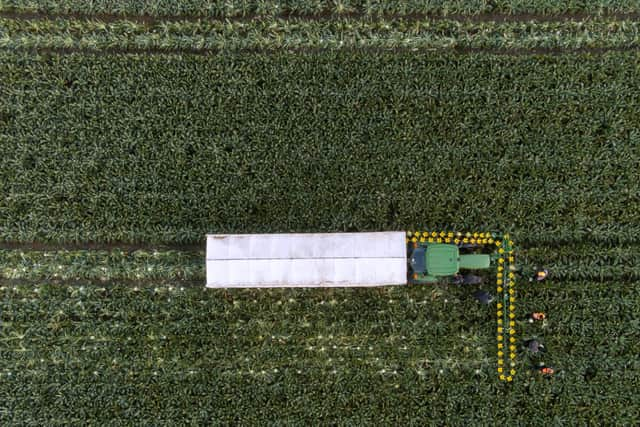Government incompetence has undermined our food security - Yorkshire Post Letters
Emma Ryan’s article and your editorial of November 27 (“Clarity needed on support for farms as climate changes”) raised intriguing questions. You rightly stress the urgent need for clear government policies to support British farming and ancillary industries during rapid environmental change.
Covid, government instability and the Ukraine war have no doubt severely disrupted our food security. However, a punitively hard Brexit had already left our farmers and food security extremely vulnerable to such disasters.
Advertisement
Hide AdAdvertisement
Hide AdYou define food security as “the reliable and affordable supply of food”. This security is endangered by our “reliance on costly imports,” and our food supplies could not possibly have been made more reliable by cutting ourselves off from the EU, our greatest source of food imports. Nor can reliability and affordability have been boosted by the huge increase in red tape for importers and exporters which the Johnson government negotiated. What is worse, the continuing failure to thoroughly monitor the traceability and safety of imported food threatens Britain’s health and hygiene security as well.


Covid may have been a surprise, but Mr Johnson had never shown much interest in emergency forward planning. He failed to attend COBRA meetings until it was too late.
That lack of interest seems to have infected his cabinet ministers, judging by the evidence now being given at the Covid Inquiry.
Equally shortsighted was the government’s casual approval of oligarchs pouring billions into Britain. Foresight was lacking in both episodes.
Advertisement
Hide AdAdvertisement
Hide AdBrexit was deliberately planned politically, but as usual without detailed assessment of the predictable impact on the costs, labour market and logistics of our farming and food industry.
Ignorance of how farming and business operate resulted in higher prices and loss of control over our food supplies. Farmers Weekly (June 23, 2023) published a wide-ranging survey of farmers’ attitudes to Brexit seven years after the referendum. Some 70 per cent of cereal farmers and 68 per cent of beef farmers said Brexit had been negative for their business. This rose to 81 per cent for vegetable growers and 79 per cent for pig farmers, who were deprived of pickers and slaughterhouse workers respectively.
Fruit and vegetable growers were also most affected by the extra red tape. Nor were farmers pleased with the Australia and New Zealand deals which will undermine domestic production. 70 per cent of farmers and 85 per cent in the ancillary industries - want to rejoin the single market.
The more costly imports created by Brexit make growing more domestic food an urgent matter.
Advertisement
Hide AdAdvertisement
Hide AdGovernment stinginess, however, means less support for farmers than the EU provided. British food security demands greater protection from climate change, but Mr. Sunak’s environmental stance leaves us more vulnerable than ever.
Tiny trade deals with countries on the other side of the world undercut our farmers.
When the next catastrophic event happens, our food supply resilience will have been battered by this government’s incompetence and indifference to our needs.
Comment Guidelines
National World encourages reader discussion on our stories. User feedback, insights and back-and-forth exchanges add a rich layer of context to reporting. Please review our Community Guidelines before commenting.
